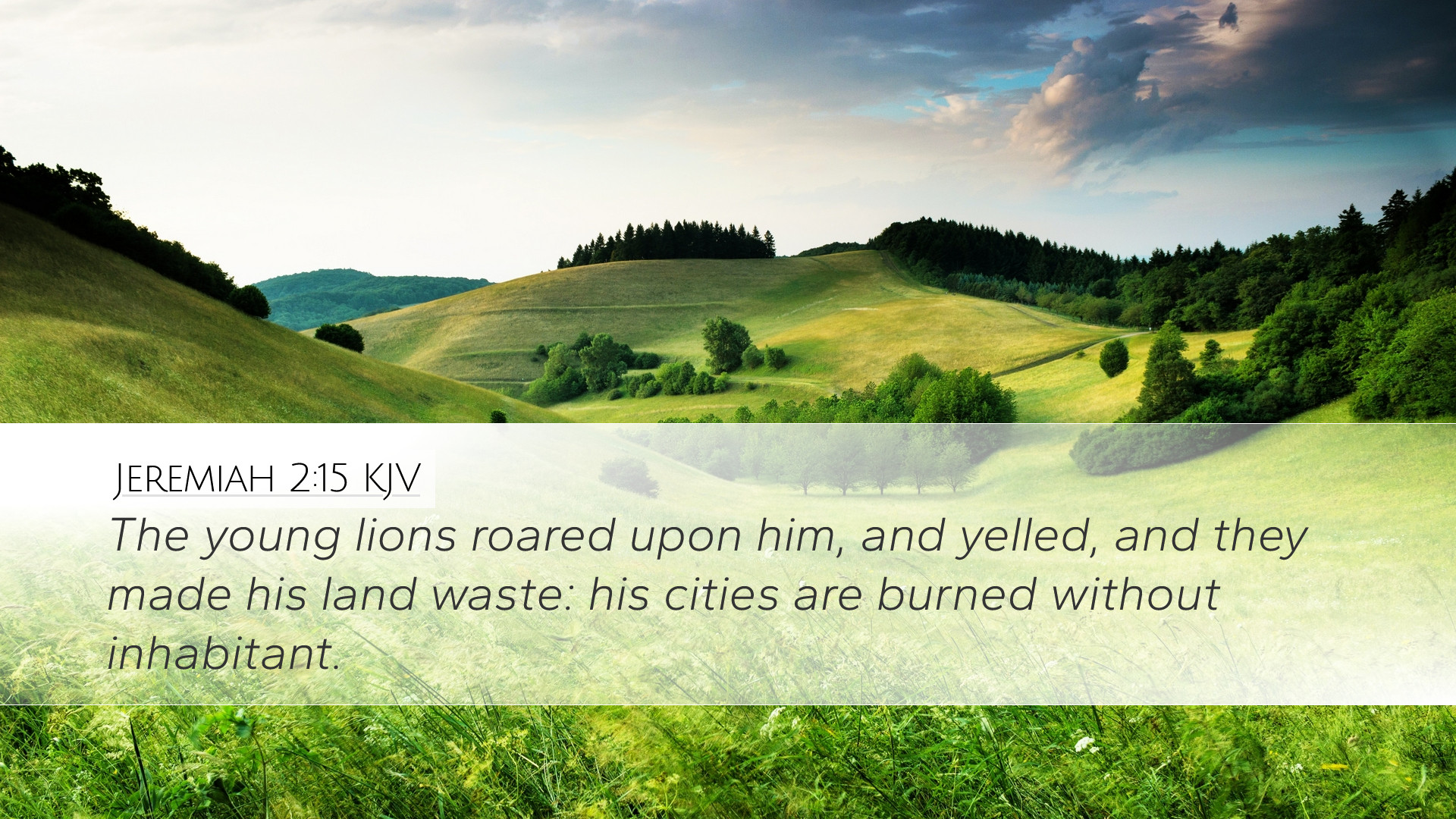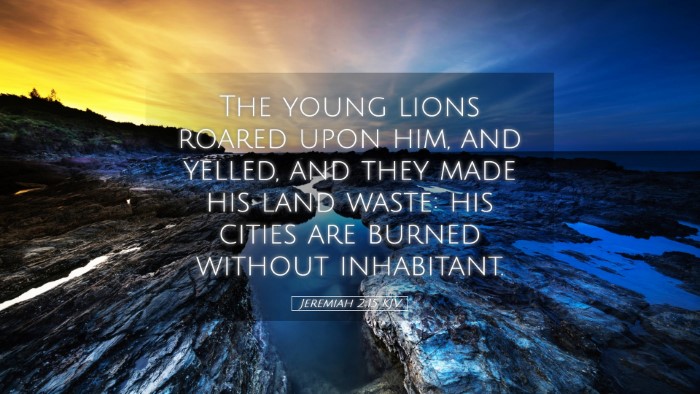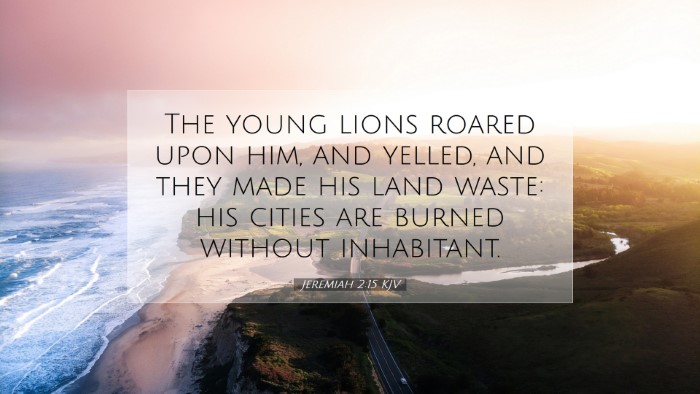Commentary on Jeremiah 2:15
Jeremiah 2:15: "The young lions roared upon him, and yelled, and they made his land waste; his cities are burned without inhabitant."
This verse serves as a vivid depiction of the devastation that befalls the nation of Israel due to its unfaithfulness to God. The imagery used in this verse captures a scene of destruction and serves as a metaphor for the greater spiritual and moral decay experienced by the people.
Insights from Matthew Henry
Matthew Henry provides a profound insight into the nature of the judgment that befalls Jerusalem. He emphasizes that the metaphor of young lions roaring is indicative of fierce enemies that rise up against the nation. Henry notes that the roaring signifies both the terror instilled in the hearts of the people as well as the inherent danger of turning away from divine guidance.
- The Enemies of Israel: The 'young lions' represent Assyria and Babylon, powerful nations that would bring destruction. Henry points out that the judgment of God is often executed through these fierce nations.
- Spiritual Deterioration: This verse illustrates the consequences of Israel’s apostasy. Henry argues that spiritual decay results in physical ruin, and as the people's hearts stray from God, so too will their cities fall into disarray.
- The Theme of Desolation: Henry highlights the desolate nature of the land, emphasizing that cities burned without inhabitant reflect God’s displeasure and the consequences of forsaking His covenant.
Insights from Albert Barnes
Albert Barnes offers a historical and theological perspective on this verse. He explains that the 'young lions' can be interpreted as both literal and figurative components of judgment.
- A Figure of Strength: Barnes suggests that the ferocity of young lions symbolizes not only fearsome enemies but also the strength and vigor of God’s retribution against sin.
- Consequences of Turned Away: Barnes underscores that the loss of cities and the wasteland signify a broader theme of abandonment—abandonment by God in response to Israel's unfaithfulness. The land becoming desolate is a powerful reminder of the inherent risks of disobedience.
- God’s Sovereignty: An essential point Barnes makes is God's sovereignty over nations. The rise and fall of empires, viewed through this lens, reveal God's hand in history, where His judgment may operate through other nations.
Insights from Adam Clarke
Adam Clarke approaches this passage with a focus on the prophetic and moral implications of the imagery.
- Prophetic Warning: Clarke interprets the verse as a prophetic warning to the people of Israel. The metaphor of roaring lions signifies a wake-up call, alerting the nation to the dangers ahead resulting from their disregard for God.
- Divine Retribution: He emphasizes that the devastation—cities burned and land made waste—serves as not only a consequence but a deliberate act of divine retribution designed to bring the people back to repentance.
- The Call for Reflection: Clarke calls upon the reader to reflect on the broader spiritual application of this verse, reminding us of the dire consequences of neglecting our spiritual responsibilities and the resultant loss of divine favor.
Concluding Thoughts
This verse encapsulates the themes of judgment, desolation, and the serious consequences of turning away from God. It serves as a reminder to current believers, leaders, and scholars that the physical manifestations of societal decay are often rooted in deep spiritual failure.
For pastors and theologians, this passage emphasizes the preventable nature of spiritual decline. It calls for vigilance in maintaining faithfulness to God, urging the faithful to actively pursue righteousness and to lead their congregations in sound doctrine.
Ultimately, Jeremiah 2:15 warns of the severe repercussions of societal forgetfulness of divine instruction and calls for introspection and a return to faithful service.


